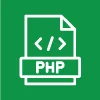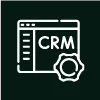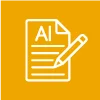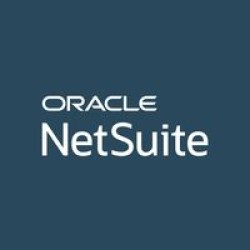What is HRIS System - Benefits, Costs & More
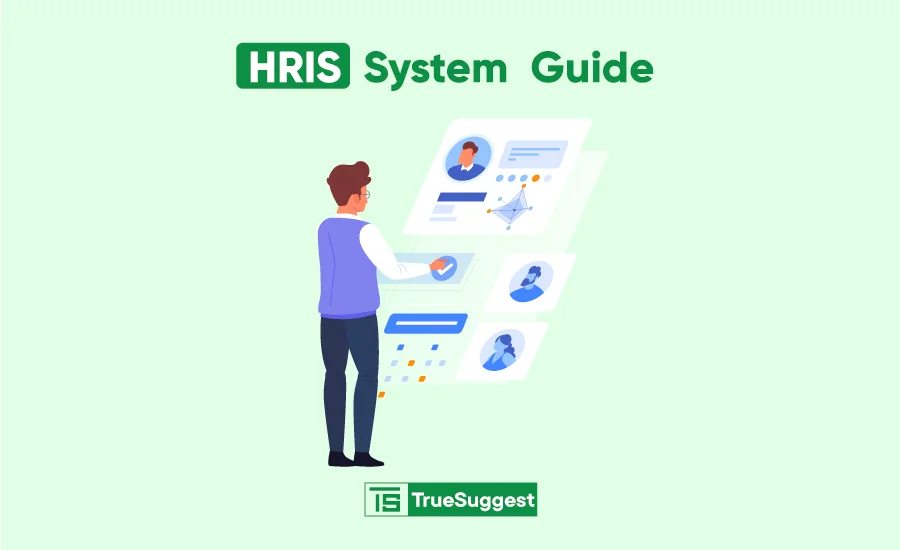
The HRIS or human resource management system is a fundamental piece of software that organizes HR activities. But more concretely, what is an HRIS? What are its key features. Above all, how can it help you reach your organizational goals and improve your current HR processes?
An HRIS can help you gain more efficiencies in your HR processes to free you up to focus on revenue-generating activities.
Effective HR management without the proper human resource software is nearly impossible recently, at least for companies of a certain size.
If you are looking for a complete human resource management system guide, then you're at the right place. In this article, we will learn what is HRIS system and how it's effective for a company. Also, we will learn how companies will benefit from this system.
What Is Human Resource Information System
An HRIS, or Human Resource Information System, is a software solution designed to manage, process, and automate HR tasks and functions.
It serves as a centralised repository of employee information, facilitating data management and streamlining HR processes.
HRIS merges HR activities and information technology to improve the efficiency and effectiveness of HR operations.
What are The Three Types of HRIS? let's Enroll
There are five main types of HRIS systems. When you are purchasing an HRIS system, knowing about the different types will help you weigh your options and select a system that best suits your company’s specific needs.
Basically there are five types of HRIS systems so learn the basics and it will help you weigh your options and select a system that best suits your company.
- Operational HRIS
- Strategic HRIS
- Tactical HRIS
- Comprehensive HRIS
- Limited-function/specialized HRIS
So frist three types are operational, tactical, and strategic HRIS systems. It is categorized according to the types of HR functions they perform. Operational systems automate core HR processes, and the others add on more advanced features.
The remaining two types – comprehensive and limited-function – are based on whether the systems provide a wide or narrow range of features.
Operational HRIS
Daily HR tasks and processes.
An Operational Human Resource Information System (HRIS) is a type of software that supports day-to-day operations. It primarily locked on administrative and routine tasks like managing employee information.
If the case your HR team spends too much time on repetitive people management tasks and spreadsheets for employee data.Then
An operational HRIS system could be the right choice.
Also, all the Key functions of an operational HRIS include
- Employee Records Management
- Attendance and Time Tracking
- Payroll Administration
- Benefits Administration
- Recruitment and Onboarding
- Compliance Management
- Performance Management
The reason to choose an Operational HRIS
If they want to prioritize employee development and retention.
Strategic HRIS
With the name of this HRIS, you can guess it helps with strategic analysis and decision-making. If you are an organization expanding to grow strategically then this HRIS is perfect for you.
Function of strategic HRIS
- Talent Managemen
- Workforce Planning and Analytics
- Employee Engagement and Retention
- Compliance and Risk Management
- Compensation and Benefits Management
- Strategic Decision Support
- Global HR Management
If you want to rely on concrete figures to make intelligent, strategic, data-driven decisions for your company’s future, it’s a good idea to choose a strategic HRIS.
The reason to choose a strategic HRIS
If they want to prioritize intentional hiring practices and smooth expansion.
Tactical HRIS
A Tactical (HRIS) is designed to support medium-term planning and decision-making within the human resources function.
Tactical HRIS helps managers and HR professionals make informed decisions about workforce management, organizational development, and resource planning.
Let's check some of the functions of Tactical HRIS
- Recruitment and Staffing
- Employee Information Management
- Performance Management
- Training and Development
- Compensation and Benefits Administration
- Time and Attendance Management
- Employee Self-Service
- Workflow Automation
The reason to choose a Tactical HRIS
If they want to prioritize resource allocation.
Comprehensive HRIS
A comprehensive HRIS system combines operational, tactical, and strategic systems.
Itys works like a fully functional database and reviews and manages a variety of HR-related tasks and areas like
- Employee information
- HR files
- Open positions
- Recruitment and hiring details
- Compensation and benefits
- Job analysis and design
- Safety guidelines
- Skills inventory
- Training and development
- Performance management
The reason to choose a Comprehensive HRIS
If it is large enough to need all three functionalities.
Limited-Function/Specialized HRIS
A Limited Function HRIS is really focus on one or a few core functions.It's the best solution for smaller businesses that have tighter budgets and lean HR teams.
It focuses on essential HR activities and does not encompass the broad strategic functionalities of a more comprehensive system.
The main function of limited function or specialised HRIS
- Employee Information Management
- Payroll Management
- Time and Attendance Tracking
- Benefits Administration
- Regulatory Compliance
- Employee Self-Service
- Pay Stub Access
The reason to choose a limited HRIS
If they have narrow, specific HR needs and a limited budget.
How Does An HRIS System Work?
HRIS solutions integrate various HR functions into one comprehensive software solution. It improves processes such as
- Employee data management
- Payroll, recruitment
- Benefits administration
- Time and attendance tracking
- performance evaluations.
By centralizing employee information, HRIS improves data accuracy, reduces redundancy, and facilitates easy access to critical information.
The system operates through several modules, each dedicated to a specific HR function.
For example
The employee self-service module allows staff to update personal details, request leave, and view pay stubs. The payroll module automates salary calculations, tax deductions, and direct deposits. Recruitment modules help manage job postings, applicant tracking, and onboarding processes.
HRIS also provides details reporting and analytics capabilities. It also enables HR professionals to generate insights on workforce trends, compliance, and productivity. These insights support data-driven decision-making, strategic planning, and policy development.
Modern HRIS systems often incorporate cloud-based solutions, ensuring data security, scalability, and accessibility from various locations. Integration with other business systems, such as finance and operations, further improves organizational efficiency.
an HRIS transformation can be a lifesaver for HR management. Automating routine tasks, improving data management, and giving a more efficient, informed, and strategic HR function.
How Much Does An HRIS System Cost?
After learning what is hris And how does its works then its time to discuss the price range of this particular software.
If you are in the market for this particular software then it's important to know the total cost amount. The answer is it literally depends on the structure you want for your HRIS software.
On average, It could expect to pay costs ranging from $1 to $15 per employee per month depending on the features you select.
Some of the factors that can increase your HRIS costs include
- Recruitment capabilities
- Type of HR software
- Implementation fees
- Systems Integration
- Ongoing training
- Number and types of users
- Hardware and maintenance
Let's give you an example that will help you to clear out some of the confusion about it
You need a recruitment module in your HRIS software then and need the below things in this
- Creating jobs with descriptions
- Creating employee and candidate profiles
- Posting jobs to job websites and social networks
- Scheduling interviews
- Assessing candidates (with likes or stars)
- Sharing CVs
If you want to customize this option then the cost will be $25,920-$28,800 to develop
- The onboarding module costs around $22,680-$25,200 to develop.
- To develop a module like this, expect to spend around $11,660-$12,960.
- This module is estimated at $12,960-$14,400 to develop
- Finally, the payroll module costs around $23,320-$25,920.
Note that all the costs will vary according your the function of the modules and customization
How Does HRIS Help An Organization-Real Benefits
The implementation of an HRIS can make a huge impact on an organization. It will help you to manage to achieve overall business success. let's take a closer look at how HRIS influences various aspects of an organization. After getting a proper introduction to what is hris system
Let's check how does HRIS help an organization.
Strategic HR Management
Automating administrative tasks and HRIS allows HR professionals to shift their focus from transactional activities to strategic initiatives. This shift enables HR to be more significant in driving organizational growth and achieving business objectives.
Improves Employee Engagement and Retention
HRIS platforms improve employee experience by providing easy access to information, simplifying processes, and enabling self-service functionalities. Satisfied and engaged employees are more likely to stay with the organization, reducing turnover rates.
This leads to increased employee satisfaction and engagement, as they have more control over their HR-related tasks. As a result, it can resolve issues quickly without relying on HR staff.
Data-Driven Decision Making
The capabilities of an HRIS provide HR leaders with valuable insights into workforce trends, performance, and other key metrics. Data-driven decision-making leads to better workforce planning, talent management, and overall organizational performance.
Cost Savings
While the initial investment in an HRIS can be significant, the long-term cost savings are substantial. Organizations can save on administrative costs, compliance fines, and employee turnover expenses by automating processes and reducing errors.
Compliance and Risk Mitigation
Maintaining compliance with labor laws and regulations is a critical concern for organizations. An HRIS helps mitigate compliance risks by ensuring accurate record-keeping, generating necessary reports, and providing tools for auditing and risk management.
Scalability and Adaptability
As organizations grow and evolve, an HRIS can adapt to changing needs and scale accordingly. This flexibility makes sure that the system remains effective in supporting HR functions, regardless of the organization’s size or complexity.
Better Recruitment and Onboarding
HRIS system improves the hiring process by automating job postings, application tracking, and interview scheduling. Once a candidate is hired, the system ensures a smooth onboarding process. This system manages necessary paperwork, training schedules, and orientation programs. This results in a more efficient and positive experience for new hires.
Choosing The Right HRIS -Key Factor To Look Down
Like all we know, Choosing an HRIS system is always a painful job Still following some key factors is easy all the process. Before starting the fight consider the following question.
- How many employees does your organization have?
- What HR processes do you currently handle manually?
- What are the pain points in your existing HR system?
- What are your long-term HR goals and objectives?
- Do you have any specific compliance requirements?
By answering these questions, you'll gain valuable insights into your organization.
1. Company Needs and Goals
Clearly define your organization's HR needs and long-term goals. Consider what specific problems you are trying to solve and how the HRIS can support your strategic objectives. For example, improving recruitment, streamlining payroll, or enhancing employee engagement.
2. Features and Functionality
Feature is an important term for any software because it helps to find out your one.
Essential features might include employee data management, payroll processing, benefits administration, performance management, recruitment, and onboarding. List all the HRIS Software available in the market then pick which one is perfect for you and which is not. Prioritize the features that are most important to your organization.
Friendliness and smooth Dashboard
The HRIS software should be intuitive and easy to use for both HR staff and employees. A user-friendly interface reduces the learning curve, minimizes errors, and improves overall efficiency.
Note : Look for systems that offer demos or trial periods to test usability before making a decision.
Adaptability
Consider the adaptability of the HRIS system. Ensure that the software can grow with your organization and accommodate an increasing number of users, employees, and data. It is crucial to avoid the need to switch systems as your organization expands. So it's a must checkable thing before choosing an HRIS system.
Integration Capabilities
The HRIS software should be able to integrate seamlessly with other existing systems such as
- Accounting
- ERP
- Payroll software.
This ensures a smooth flow of data across different platforms, reducing redundancy and improving maximum ROI.
Customization Options
Every organization has unique needs and processes. Yes, that's right.
If you need a customization HRIS software, then choose the customizable one. Customization improves the software's relevance and usability for your organization.
Data Security and Compliance
HRIS software has extreme data security measures in place to protect sensitive employee information. Look for features like encryption, user authentication, and access controls. Additionally, the system should help you comply with relevant data protection regulations such as GDPR or CCPA.
Vendor Reputation and Support
Research the reputation of the HRIS vendor and their track record with other clients. Read reviews, ask for references, and consider the level of customer support they provide. Reliable and responsive support is crucial for addressing any issues that arise and ensuring a smooth implementation.
Cost and ROI
Analyze the cost of the HRIS software, including initial setup, licensing fees, maintenance, and potential hidden costs. Compare these costs against the expected return on investment (ROI), such as time savings, increased productivity, and improved compliance. Choose a solution that offers the best value for your budget.
Training and Support
Effective training is essential for maximizing the benefits of an HRIS system. Evaluate the training resources and support services provided by the vendor.
This includes
- User manuals
- Training sessions
- Online tutorials
- Ongoing support
Its ensures your team can use the system effectively.
Endnote
Understanding what is HRIS system and all the details is pretty much easy now to pick the best HRIS. A proper HRIS system will be more helpful and intuitive, making it easier for employees to achieve their objectives more easily, and faster.



